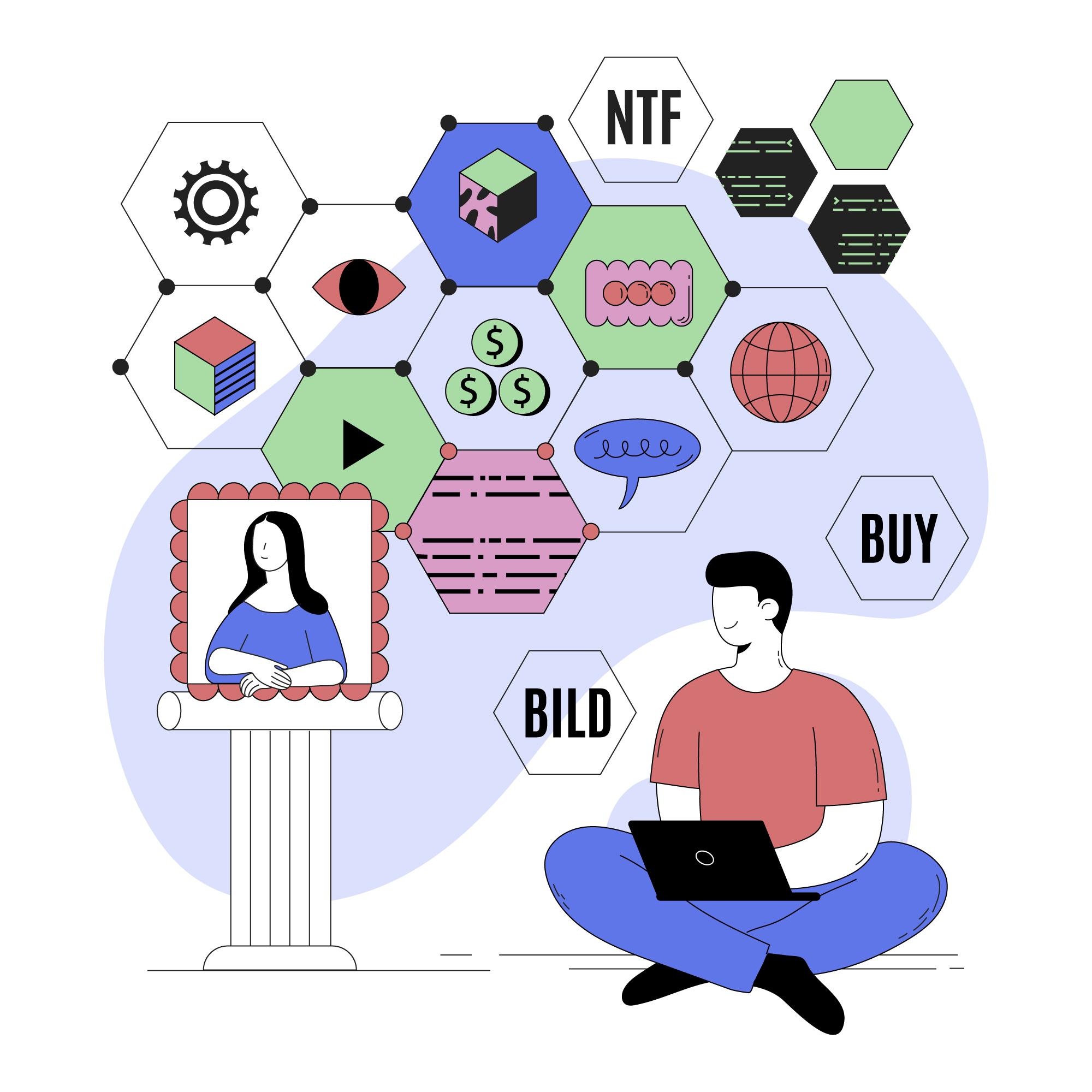The Blockchain beyond cryptocurrencies: NFT's
---
Villamizar explains the definition of NFTs and their possible application to guarantee the intellectual property rights of creators or artists
The technological world and the adoption of new disruptive technologies has had a huge impact on the way we relate to each other, and of course, in almost all spheres of our lives. Recently these developments have revolutionised the art or collectibles sector through NFTs or Non-Fungible Tokens, a technology that saw the light of day in 2017 with its first standard (although some suggest that it can be traced back to 2012 - 2013 with Colored Coins).
But what are NFTs? An NFT, as its name suggests, is a non-fungible token, that is, a kind of Smart Contract (computer code that, given the occurrence of a certain condition or conditions, is executed in a given DLT or Distributed Ledger Technology (such as Ethereum)), which is not fungible, therefore, unique and unrepeatable.
These kinds of non-fungible tokens have been used to trade digital products such as games, digital art, images, videos, and other forms of human expression in the digital world. An example of this can be the case of Kings of Leon's latest album, which was released with three types of tokens that vary from offering a special package of the album to front row seats for future concerts. However, and this is where the story gets interesting, this album will be available on all the platforms we know today such as Spotify, Apple Music or Amazon.
In other words, there will be people who will buy the NFTs and enjoy the same content as all the users of the aforementioned music streaming platforms, only with some additional benefits. This would imply that, then, the advantage of purchasing an NFT would consist, as in the case of Kings of Leon, of additional benefits or advantages.
However, this is a special case, in other cases there is no substantial differentiation between those acquiring an NFT or accessing the digital product through any other platform. This has not prevented the NFT market from growing by 115% in the month of December 2020 alone, or even the NBA from joining this revolution with the creation of an online shop selling cards, videos and collectibles through NFTs (NBA Top Shot), where a video of LeBron James performing a dunk was recently sold for $208,000 USD, a video that in any case can be viewed on YouTube or other platforms.
 Fuente: Freepik
Fuente: Freepik
Having understood how NFTs work and their particularities, we will now discuss a particular case where NFTs can be used to secure the intellectual property rights of creators or artists.
In this case, according to Patent No. 10,505,726B. 10,505,726B1 of 10 December 2019 of the United States Patent Office in the head of NIKE INC, managed to be granted this protection in respect of a system for using cryptographic digital assets (NFTs, in other words) called CryptoKicks where it can be read: "Cryptographic digital assets for articles of footwear, methods for making/using such cryptographic digital assets, and decentralised computer systems with Blockchain control logic for mining, intermixing, and exchanging Blockchain-enabled digital shoes are presented".
The aforementioned mechanism aims for the company to implement measures to help prevent its products from being counterfeited and to have the means to transparently and securely verify that a good is indeed one of those manufactured by the aforementioned company, and where they take advantage of the benefits of technology to store different transactions and even develop new forms of interaction and consumption, which the company calls "Collaborations":
"In a development, it is possible to "breed" or make a collaboration ("Collab") of two CryptoKicks to create CryptoKick children (an "RVK" or "CollaboKick"). This CollaboKick will itself have a unique token and different attributes from its parent CryptoKicks. A Collab can combine the attribute data and/or the genetic code of the two parent tokens to generate a new KickID NFT which, in turn, identifies the CollaboKick".
As we can see, the use of this new technology allows creators to create systems that guarantee the originality of their creations and prevent, at least for a certain segment of consumers, counterfeit or copied products from being marketed.
With regard to the Colombian case, for example, these assets raise important challenges such as determining the scope that these tokens would have with regard to the rights of the creators/artists: are they granting a mere licence, or is it a transfer of economic rights? If a holder of an NFT uses part of a Kings of Leon song in his business establishment, will he have to pay the "pecuniary perceptions from the authorisation for the public communication of the music" managed by Sayco Acinpro, or is it already understood that there was remuneration at the moment of acquiring the NFT?
Despite their benefits, as indicated above, NFTs pose certain challenges in terms of the current legal rules on property rights and intellectual property rights or even privacy rules, which we as lawyers of the future must analyse in order to take advantage of these new technologies and guarantee the rights of the different actors in the market.
Related links
Main menu






